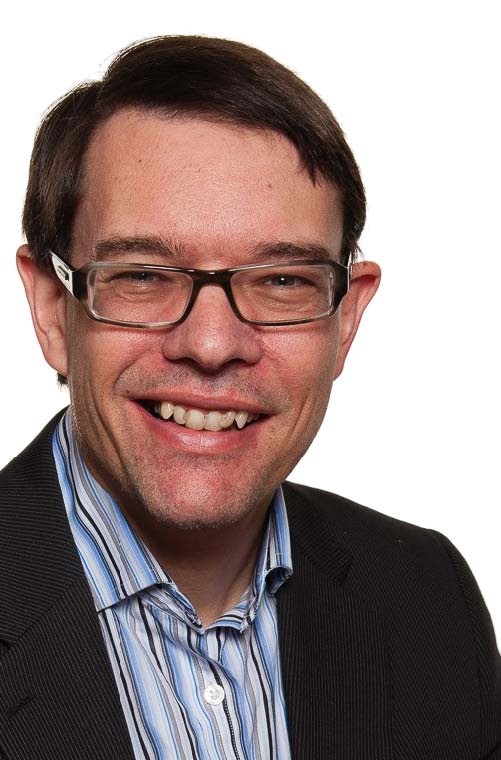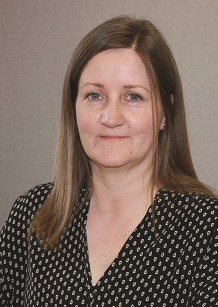Integrated care: one population, one budget
Frimley Health and Care’s integrated care system is a good example of what NHS England had in mind when it talked about an ‘evolved version of a sustainability and transformation partnership (STP)’ in last year’s Next steps on the five-year forward view document. But in fact, Frimley’s integration journey started long before that.
Frimley Health NHS Foundation Trust was born out of the acquisition by the former Frimley Park NHS Foundation Trust of the Heatherwood and Wexham Park Hospitals NHS Foundation Trust. And as long ago as 2015, one of the ICS’s clinical commissioning groups (Surrey Heath) was already planning a programme of health and social care integration for older people with long-term conditions and complex needs.
But the creation of the STP, and its selection last year as one of eight shadow accountable care systems (now rebadged as ICSs), has increased the momentum even further. Final confirmation of Frimley’s operational status as an ICS could happen in May, although this requires all involved organisations to sign up to a system control total – which itself is dependent on NHS Improvement issuing final rules on how this will operate.
However, there are already signs of improvement from a more integrated approach in terms of getting a grip on demand. And there are some very visible signs of the increased collaboration that has brought the system this far.
These include last summer’s appointment of Nigel Foster (pictured) as director of finance and information management and technology at Frimley Health. He was previously chief finance officer for the three local East Berkshire CCGs (now formally merged into one CCG as of April) and retains this role – thought to be the only example of a shared provider/CCG director of finance role in the country.
The goals for the system could be lifted from any number of STP plans around England. It wants its population to have the ‘best possible health and wellbeing’ and to keep them ‘healthy and in their homes for longer’.
Like other STPs, it has identified a ‘do nothing’ gap – the system deficit it would face by 2020/21 if service models remained unchanged and demand and activity continue on trend. In Frimley’s case, this upfront calculation in 2016 amounted to £236m across health and social care. To address this, the ICS is bringing together statutory bodies including local authorities, three principal providers and three CCGs (Surrey Heath, North East Hampshire and Farnham and the new East Berkshire), with an initial focus on seven transformation initiatives.
Some might point at the providers’ relatively stable financial position as the foundation for its good progress to date and some early success. NHS Improvement’s Q3 figures showed all three of the main providers forecasting a surplus for 2017/18, with surpluses in two of those cases being more than plan.
Mr Foster acknowledges that ‘solid finances clearly help’, but says Frimley Health’s underlying position is much more challenging. In 2017/18, the trust was still benefiting from £15m of non-recurrent support related to its earlier acquisition. This income stream has now significantly reduced.
But a good financial base is only part of it. ‘The thing that makes all the difference is the level of trust and the quality of the relationships we have across the system,’ he says. ‘If you don’t have that, you won’t progress as far or as fast.’
Common cause
Relationships across Frimley weren’t always good – the system exhibited relatively adversarial relationships in the past. But the need to find a system solution for Heatherwood and Wexham Park marked a change in approach.
‘Previously, there had been no great rationale for lots of conversations between CCGs across the patch,’ Mr Foster says. ‘But this gave us a common cause and reason to come together to develop a standardised approach to commissioning and contracting from the acute trust.’
This also meant there was an established footprint to work from when STPs came along, with a logic based on a common primary flow of patients into the acute provider Frimley Health. ‘We’ve spent a lot of time developing relationships, perhaps especially with local authorities – they’ve been in the room from the outset with representatives on the ICS board and on the finance reference group,’ says Mr Foster.
An integrated care system does not mean everything is decided together – or that there is one single model in all parts of the economy. ‘Surrey Heath, for example, is continuing to work on integration and doing so very successfully – it is not in competition with what we are trying to do,’ says Mr Foster.
There is also clarity about what is best done together and what individual organisations just need to get on with. ‘Most of the things an acute trust has to do, it can just get on and deliver – debating them on a system level doesn’t add any value,’ he adds.
But for issues such as pathway redesign and ensuring organisations remain viable within transformed models of care, a system approach makes perfect sense.
Decision-making hubs
One key initiative is the development of integrated care decision-making hubs, building on existing work in local CCGs and North East Hampshire and Farnham’s Happy, healthy, at home vanguard. This has seen community multidisciplinary teams managing people with a high risk of hospital admission and the creation of multidisciplinary assessment and rehabilitiation centres and hospital in-reach services.
The ICS has also taken a system approach to clinical variation, pursuing its headline opportunity areas identified by the RightCare programme. For example, Frimley is implementing a new neurology service across its whole system, providing proactive and reactive support to patients to enable them to live as independently as possible.
There are some positive signs that all its initiatives are bending the demand curve on hospital services. Recent figures suggest that there have been reductions in A&E attendances, non-emergency admissions and GP referrals across most of its commissioners. Some of these are significant – a 10% reduction in GP referrals from Surrey Heath, for example, and a 4% reduction in A&E attendances in the former Windsor, Ascot and Maidenhead patch. And the system believes that it can continue to control this demand in 2018/19.
Funding flows need to underpin these new models as current payment systems will not always support revised pathways. For example, more proactive community support may reduce hospital admissions. But reducing the hospital’s payment using tariff (activity x price) would not recognise any fixed costs the hospital could not eliminate.
‘We all recognise that not all the payment by results costs can be taken out, and conversations are about what represents a genuine cost saving and what are reasonable challenges in terms of efficiency improvement,’ says Mr Foster.
However, he says the system has ‘moved away from thinking about spending a lot of time devising a new complex payment system’, suggesting this would be ‘almost a distraction from the main challenge’.
‘So we will continue to turn the tariff handle,’ he says, ‘as that is the best point of reference everyone has for pricing activity and services across the system.’ This will provide a starting point for conversations about what is affordable and what is needed – and all within the context of meeting its newly set system control total.
Frimley, like many other ICSs and STPs, does talk about moving towards ‘one budget’, although this is currently more figurative – getting best value out of the £1.7bn spent on health and care – than literal.
Mr Foster acknowledges there are different views on how this might move forward. ‘My view is we need to explore the idea of one budget – but it is not the main thing,’ he says. ‘The priority is keeping trust and relationships going. There are already enough ways to move money around the system between organisations – and we don’t even need a system control total for that.’
However, he acknowledges that in more financially challenged systems, more formal funding flows may be important.
Integrated focus on demand
Berkshire West is another first-wave integrated care system that is building on a history of integration. Local organisations started working in 2014 as the Berkshire West 10, including the four local CCGs (now merged into one), Berkshire Healthcare NHS Foundation Trust, Royal Berkshire NHS Foundation Trust, the ambulance service and three unitary authorities. The other key partner has been general practice, with GPs now organised into four alliances based on the old CCG boundaries.
However, the move to work as an ICS means the remit has broadened beyond the BW10’s focus on frail elderly, mental health, children and the Better Care Fund. The system is pursuing a number of new care models. These include a more proactive way of supporting high intensity users – based on work from Blackpool and Fylde (see Unlocking variation, Healthcare Finance April 2017) – and work on musculoskeletal (MSK) services, outpatients and respiratory care.
Rebecca Clegg (pictured), acting chief finance officer for the newly merged Berkshire West CCG says the lack of financial headroom in the system means that progress is slower than participants would like. But it is also the reason why reform is so essential.
‘With outpatients we want to understand what we can stop doing, what we can deliver using different technology and what would be better delivered in primary care or the community,’ she says. ‘Then we can understand the residual activity that still needs to happen as it does currently.’
The reality is that the make-up and potential solutions for outpatients are different specialty by specialty. And so the system is now pursuing multiple projects.
However, Ms Clegg says the system is not trying to recreate the wheel. Lots of other areas are pursuing changes to outpatients, and Berkshire West is keeping a close eye on the MSK work in mid-Nottinghamshire (see New payment model, Healthcare Finance July 2017). The current focus is on putting the right enablers in place to support the delivery of benefits in both outcomes and finances.
The payment approach to date has involved a block contract for community and mental health services (delivered by Berkshire Healthcare NHS FT) and a tariff-based contract for acute services (Royal Berkshire NHS FT), albeit capped and then using a marginal rate.
The ICS has set out a clear aspiration to put a single capitated budget and financial plan in place and to have contracts based on cost, not price.
Ms Clegg says for 2018/19 this still involves each organisation having its own contract, but is optimistic the system can make this happen in the not-too-distant future. A relatively simple system – with a single health commissioner, a single acute provider and a single mental health and community provider (alongside GP alliances) arguably makes this more straightforward than in systems with more complex patient and financial flows.
Alex Gild (pictured), chief financial officer at Berkshire Healthcare NHS Foundation Trust and the current HFMA president, says there is still commitment across the system to move to a single capitated or population-based budget. But momentum has reduced in the current regulatory environment, where the risk-benefits balance of moving more rapidly to an ‘all costs’ system risk share is not yet compelling. A system control total, encouraging partners to plan and act in the best interests of system resources is a step in the right direction. The next step is moving away from payment by results.
‘We need to stabilise financial flows in a system control total environment and PBR doesn’t support that,’ he says. ‘So the discussion is around moving to a fixed sum of funds for acute services. That is not necessarily a block contract as there could be slightly different risk arrangements, but it breaks the link with PBR, shifting mindsets to cost rather than price within the system.
‘That will allow us the headspace to start looking at system costs and to understand better where there are interdependencies within pathways between partners and experiment with risk and gain share more clearly to incentivise system pathway improvements and cost reduction.’
Mr Gild stresses this is not a risk transfer to the acute provider. ‘The intentions are still very clearly to deliver a system control total together, jointly supporting organisation pressures and system delivery in an open and transparent way.’
And moving to cost-based contracts is something the system hopes to make fast progress with. ‘We only have payment by results as a proxy for costs at the moment,’ says Ms Clegg. ‘There is patient-level cost information at the Royal Berkshire but not yet in Berkshire Healthcare. But we are hoping to use the data we have to inform contracts.’
She says that crude block contracts are not appealing to either commissioners or providers. They do transfer risk to providers, but only future risk. By starting with the previous year’s contract value, the commissioner in effect carries the risk of earlier care not having been delivered as cost effectively as possible.
The CCG’s allocation is currently £25m below its fair share of funding – at 4.5% under target. Pace of change at the moment is modest given limited funding growth. The area hopes the government’s promise of a long-term settlement for the NHS might also mean a faster pace-of-change policy on allocations. But the system is not planning on this basis. ‘What we want to do is to ensure that growth in demand is lower than our increase in allocation,’ says Ms Clegg. ‘If we can cap demand, that is where the gold is.’
Convergence 2.0
Berkshire West chief finance officer Rebecca Clegg and Frimley Health NHS Foundation Trust director of finance Nigel Foster are taking part in a session on moving integrated care systems from theory to practice at this year’s HFMA Convergence conference on 5-6 July. The event brings together the HFMA’s annual provider and commissioning conferences to again focus on the integration and collaboration agenda. Mark Orchard, immediate past president of the HFMA and finance director of Poole Hospital NHS Foundation Trust, will provide an update on progress in Dorset. The conference will also highlight ongoing work in Nottinghamshire and Staffordshire, with a keynote address from Northumbria Healthcare NHS Foundation Trust chief executive and former NHS Improvement chief executive Jim Mackey.
Related content
The Institute’s annual costing conference provides the NHS with the latest developments and guidance in NHS costing.
The value masterclass shares examples of organisations and systems that have pursued a value-driven approach and the results they have achieved.